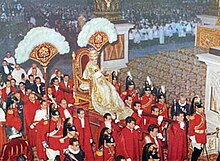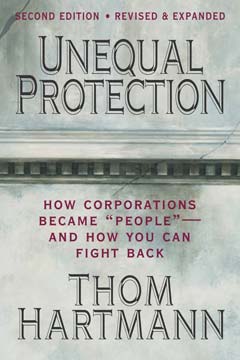 Leo Donald Davis says,
Leo Donald Davis says,
“However, homoousios was at the time a notoriously slippery word and could have three principal meanings. First, it could be generic; of one substance could be said of two individual men, both of whom share human nature while remaining individuals.
Secondly, it could signify numerical identity, that is, that the Father and the Son are identical in concrete being. Finally, it could refer to material things, as two pots are of the same substance because both are made of the same clay. Constantine himself explained that “homoousios was not used in the sense of bodily affections, for the Son did not derive His existence from the Father by means of division or severance, since an immaterial, intellectual and incorporeal nature could not be subject to any bodily affection. These things must be understood as bearing a divine and ineffable signification.” The point was that the third meaning of homoousios, with its connotations of materiality was not the meaning used in the creed. That left the two previous meanings. It seems that the Council, intent on stressing the equality of the Son with the Father, had the first meaning explicitly in mind. Father and Son are homoousioi in that they are equally divine.”
Yet in desperation Davis adds,
“But implicit in their statement was numerical identity, that Father and Son are of a single divine substance, an aspect brought out by Athanasius in the course of the long struggle following the Council.”
Even if that was the case, which he offered no reference to prove, it did not get Ecumenical status until 381. My position stands Truly Nicene in nature and my detractors must acknowledge a refusal of the Original Nicene Creed. That’s gotta hurt.
On the face of it:
1. A generic unity is a denial of the Pagan, Babylonian and Hindu Triune God.
2. This phrase, “of one substance could be said of two individual men”
necessarily affirms an ontological parallel between God and Man thus
closing the door on Van Til and Aquinas’ Analogy of Proportionality
and leaving Clark’s Univocal predication fully vindicated.
So if my readers are consistent and honest Christian men you will do one of two things:
1. Publicly renounce the Nicene Creed 325 as heretical and put
yourself in an Ecclesiastical position utterly unknown to any Orthodox
Christian peoples since the First Ecumenical Council.
2. Draw up petitions to have the Westminster Confession amended
agreeable to the Nicene Creed 325 with a single ontological procession
of the Spirit, renounce Thomism and embrace Dr. Clark’s Epistemology
and contact me so that I can apply for membership.







-1-.jpg)


























Ah. I thought I remembered you saying that your view was social trinitarianism. But I believe I understand and agree with your view itself.
You would still say the Son and Spirit can be accurately referred to as God so long as it’s understood such is in virtue of the divine nature communicated to them from the Father, right?
I should warn you that your road has been traveled before, You are dangerously heading into the theological deviations that wrecked the Presbyterian churches in England. You will wince at words like unitarian and arian, but this is where you are going. We had this debate in the 1700s, but people forgot about it.
“You are dangerously heading into the theological deviations that wrecked the Presbyterian churches in England.”
>>>I am somewhat familiar with the Salter’s Hall controversy, but do you suggest anything I could read on this?
“wince at words like unitarian and arian”
>>>I do not grasp your meaning.
“We had this debate in the 1700s”
>>>I doubt that very seriously. Can you provide sources for your claims?
If you remember all the stuff about how Issac Watts and Phillip Doddridge being goofy on the trinity, this was that era. You’ve already read Samuel Clarke, who is also from the era and is commonly classified at Arian. These debates don’t come up much because 1.) Unitarians these days are either modalists or crypto-atheists, 2.) the biggest promoters of Arianism these days are JWs, who don’t harken back to the Presbyterian debates, 3.) religious rationalists tend to just be modernists rather than Arians. The English Prebyterian Unitarians became plain old liberals. If you dig in on Google Books, you can find a wealth of information and primary sources.
Rch,
“If you remember all the stuff about how Issac Watts and Phillip Doddridge being goofy on the trinity, this was that era.”
>>>Seeing that the Isaac Watts issue has never produced much of anything clear on what he believed I ask for you to just make plain what I am saying that is incorrect?
“You’ve already read Samuel Clarke, who is also from the era and is commonly classified at Arian.”
>>>Seeing that I have already addressed this issue I find your statement to be a deliberate lie. Clarke clearly denied that Christ was a created person, not just pre-dating the creation of the world; an uncreated person. If you are suggesting that I am Arian you need to prove your statement and I believe you will discover nothing but foot in mouth.
“These debates don’t come up much because 1.) Unitarians these days are either modalists or crypto-atheists”
>>>This is why I just told you that I didn’t grasp your meaning, because it sounds like, but maybe not that you are calling me a Unitarian and an Arian in the sense that Christ is a crated person. If you are I DARE YOU TO PROVE IT AND I DARE YOU TO MAKE YOUR MEANING PLAIN.
i) Arianism is the belief that Jesus is not fully God, however stated. Samuel Clarke is almost universally listed as an Arian and his defenders deny it on the same grounds that you repeat here.
ii) You said “Only one person is God and that is the Father.” last year and have only reconfirmed the statement since them. In the same argument, you claimed that saying “God the Father, God the Son and God the Holy Ghost” is blasphemy. (Steve Hays is full of ad hominem and sputter, but he did give you the rope to hang yourself.)
iii) As I said, the Reformed have dealt with these issues before. The reason most don’t remember it is that the old English Presbyterians have no successors. (Of course, the old Presbyterians did not think they had the Nicene Council on their side.) The unitarians have moved to open infidelity.
Rch, can you please define “fully God”. Because, you see, if one believes that God is: The Father, Son and Spirit, then in order to be “fully God” Jesus needs to be the Father and the Spirit; which I think you would deny. So unless you have another definition of “fully God”, I can’t help but think you are just playing with words, over matters which are most sacred.
If you have time, please check out this article on the filioque, you may find it edifying: http://www.orthodoxanswers.org/media/documents/filioque.pdf
“Arianism is the belief that Jesus is not fully God”
>>>1. How are you using the word “God”? Define your term. i have found 6 different definitions for this term.
2. Can you provide a reference for this assertion: Arianism is the belief that Jesus is not fully God? The whole idea that all three persons are fully the One God is illogical on its face. The best you can say is that the three persons are PARTS, NOT WHOLLY, OF THE ONE GOD.
” You said “Only one person is God and that is the Father.” last year and have only reconfirmed the statement since them”
>>But here is your mistake. On my view being the one God does not pertain to nature. It pertains to hypostasis.Because it is something particular. Augustine said that being the One God meant essence. That is your confusion. I fully acknowledge that at the level of nature the Father and the Son and The Holy Spirit are equal. That is the Son is FULLY DIVINE WHICH IS A STATEMENT TO THE GENERIC NATURE, NOT WHOLLY THE ONE GOD WHICH IS A STATEMENT ABOUT THE HYPOSTASIS OF THE FATHER.
You don’t understand that and because of it you keep threatening violating the 9th commandment over and over again here in this thread.
“(Steve Hays is full of ad hominem and sputter, but he did give you the rope to hang yourself”
LOL! I fully refuted the man: https://eternalpropositions.wordpress.com/2012/07/25/a-full-refutation-of-steve-hays-van-tillian/
” As I said, the Reformed have dealt with these issues before. ”
>>>No they have not Turretin’s Institutes mentions that the homoousios language in Nicea 325 meant numeric nature which I just showed is erroneous. Second, they did not speak to the issue of filioque in any detail and third do not have any understanding of the Father’s Monarchy/hypostatic origo.